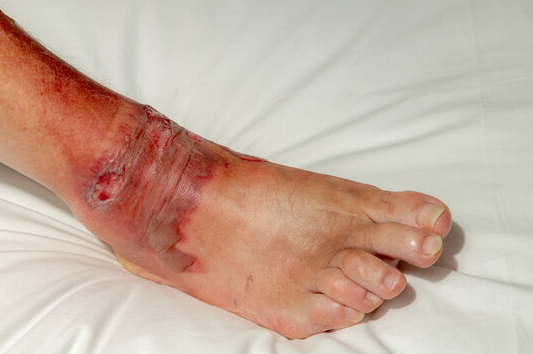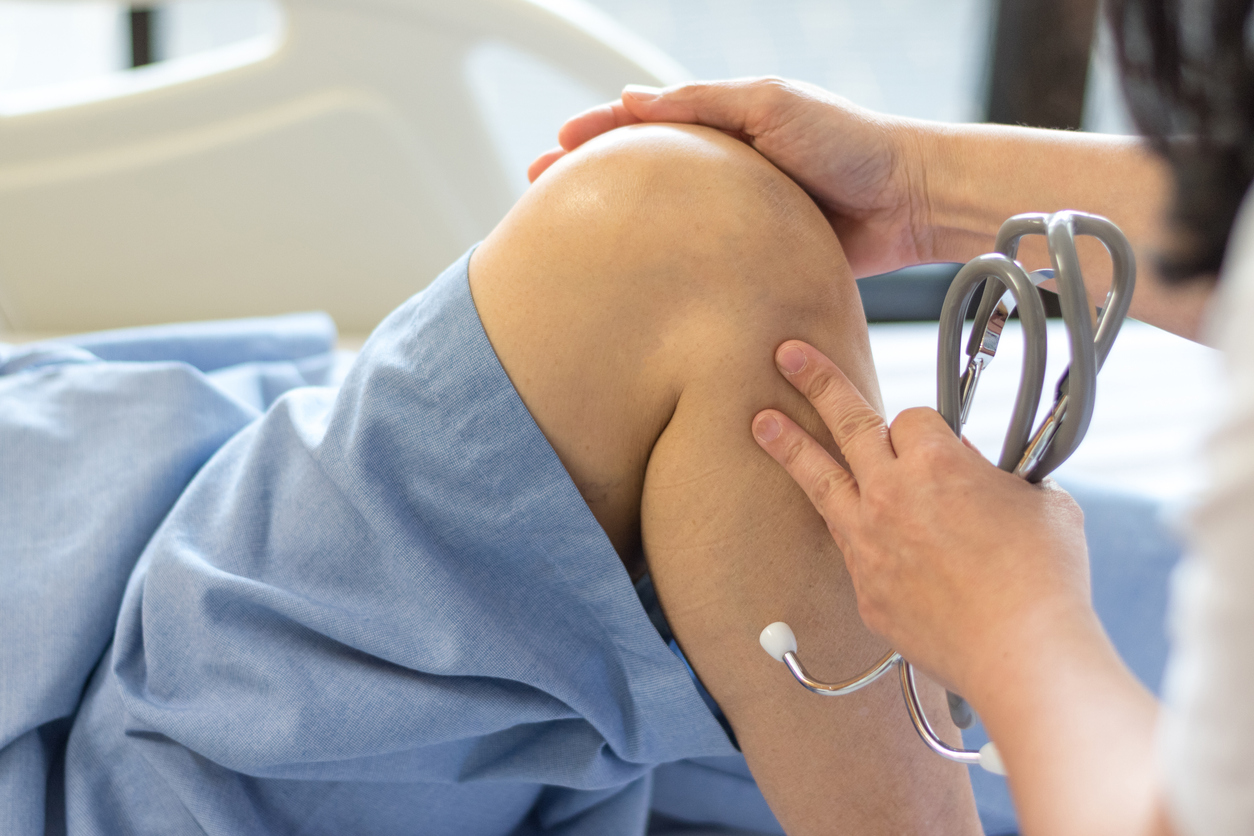Foot ulcers are a common and serious complication for individuals suffering from neuropathy, particularly those with diabetes. These ulcers, which can develop when pressure points or injuries go unnoticed due to nerve damage, require immediate and ongoing care to prevent further complications. Orthopedic treatment plays a crucial role in managing foot ulcers, improving healing time, and minimizing the risk of infection. In this guide, we’ll explore the importance of orthopedic care in addressing foot ulcers caused by neuropathy, focusing on prevention, treatment options, and the benefits of early intervention.
What Are Foot Ulcers and How Are They Caused by Neuropathy?
Foot ulcers are open sores or wounds that often appear on the feet, typically on the soles or around the toes. For individuals with neuropathy, the loss of sensation in the feet means that cuts, bruises, or pressure sores may go unnoticed until they become severe. This loss of feeling results from nerve damage caused by conditions like diabetes, which leads to a reduced ability to detect pain, pressure, or temperature changes in the feet. As a result, injuries worsen without the person realizing, increasing the likelihood of infection and further damage.
The Role of Orthopedic Treatment in Managing Foot Ulcers
Orthopedic treatment is essential for managing foot ulcers caused by neuropathy. The primary goals of orthopedic care are to promote healing, prevent infections, and stop further foot damage. Orthopedic specialists focus on relieving pressure from ulcer-prone areas, enhancing blood circulation, and ensuring proper wound care to support faster recovery.
Orthopedic interventions also help manage any deformities in the foot structure caused by neuropathy. By alleviating pressure on damaged areas and using customized treatment plans, orthopedic care can significantly reduce the risk of recurring ulcers.
Key Orthopedic Treatments for Foot Ulcers Caused by Neuropathy
Several orthopedic treatments are available to help manage foot ulcers caused by neuropathy. Here are some key strategies:
- Custom Orthotic Devices: Custom insoles and orthotic devices can be tailored to relieve pressure on specific areas of the foot, reducing the chances of new ulcers developing. These devices help redistribute weight evenly across the foot.
- Offloading Techniques: Special footwear and devices, such as walking boots or casts, are designed to offload pressure from ulcerated areas, preventing further irritation. In some cases, these techniques also promote healing by providing rest to the affected foot.
- Wound Care and Pressure Relief Strategies: Orthopedic specialists recommend specialized dressings, bandages, and ointments to care for the ulcers. Additionally, pressure relief strategies such as alternating foot positioning can assist in reducing the risk of further damage.
How Orthopedic Treatment Can Prevent Future Foot Ulcers
The role of orthopedic treatment extends beyond managing existing ulcers – it’s also key to preventing future ones. A comprehensive treatment plan includes:
- Education on Proper Foot Care: Patients with neuropathy should receive education on daily foot inspection and hygiene to spot any early signs of ulcers, cuts, or infections. Orthopedic specialists provide guidance on how to maintain healthy feet.
- Regular Monitoring: Routine check-ups with orthopedic specialists ensure that the feet are being monitored for signs of potential ulcers before they become serious. These visits may also include adjustments to footwear or orthotic devices to address emerging risk factors.
- Lifestyle Changes: Managing underlying conditions like diabetes is essential for preventing ulcers. Proper blood sugar control, balanced nutrition, and regular exercise can help protect nerve function and reduce the risk of foot complications.
Benefits of Early Intervention and Ongoing Orthopedic Care
Early intervention and regular orthopedic care are key to preventing foot ulcers from worsening. When foot ulcers are identified and treated early, the chances of successful healing and avoiding complications such as infection or amputation are significantly improved. Ongoing care ensures that any changes in foot condition are addressed promptly, reducing the risk of new ulcers developing.
By seeking professional orthopedic treatment early, patients can maintain better mobility and foot health, which is vital for maintaining independence and quality of life.
How to Choose the Right Orthopedic Specialist for Foot Ulcer Treatment
Selecting the right orthopedic specialist is essential for effective treatment of foot ulcers caused by neuropathy. Here are some factors to consider:
- Experience and Expertise: Look for a specialist who has experience in treating neuropathic foot ulcers and can provide personalized treatment plans tailored to your specific needs.
- Comprehensive Approach: Choose an orthopedic professional who offers a comprehensive care plan, including custom orthotics, offloading techniques, wound care, and lifestyle recommendations.
- Communication and Support: It’s essential to work with a specialist who listens to your concerns, educates you about foot care, and provides ongoing support as part of your treatment journey.
Takeaway
Orthopedic treatment for foot ulcers caused by neuropathy plays a crucial role in promoting healing, preventing further complications, and ensuring better overall foot health. If you are affected by neuropathy, seeking specialized orthopedic care can significantly improve your healing outcomes and reduce the risk of recurring ulcers. Remember, early intervention and consistent care are key to maintaining your mobility and foot health.











